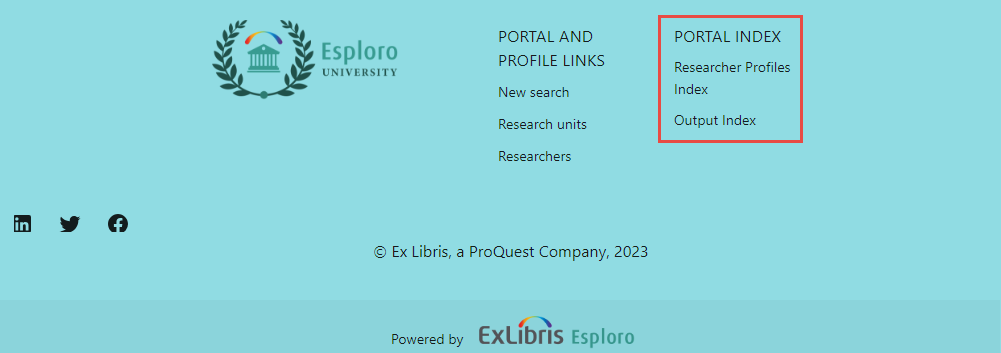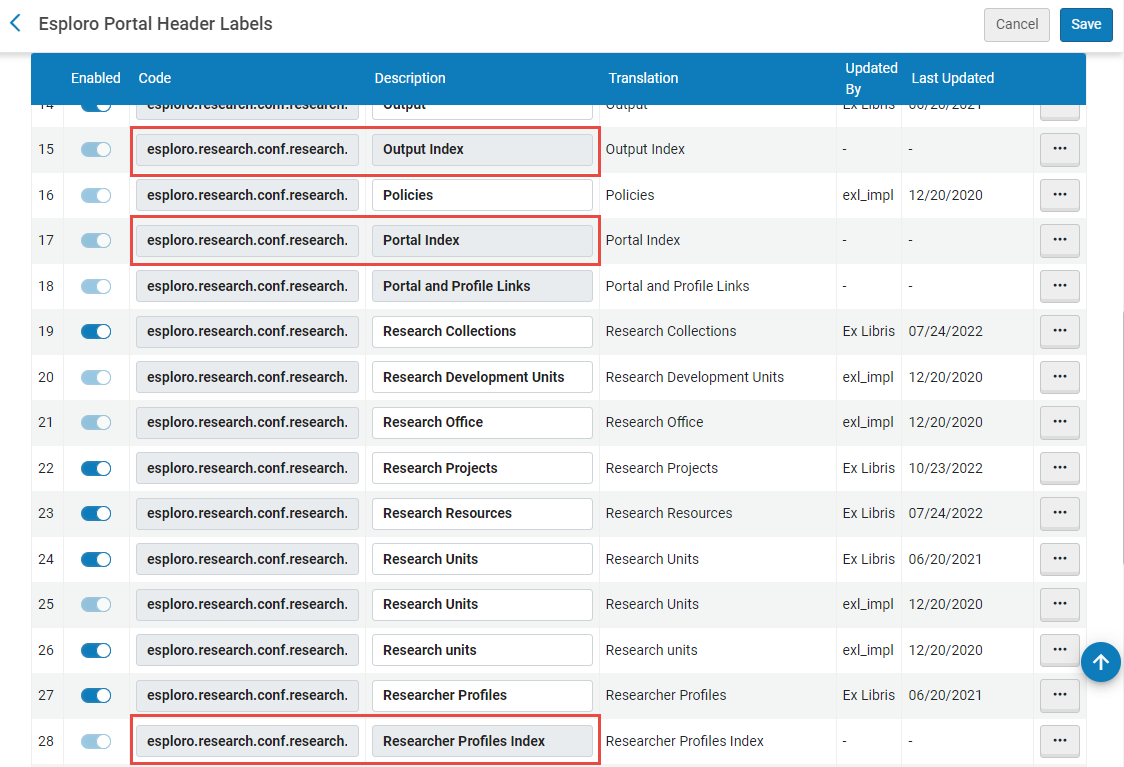Publishing from Esploro to Google Search, Scholar and Datasets
This page describes how to publish to Google, Google Scholar and Google Dataset Search. For general information on publishing in Esploro, see Esploro Publishing.
Before running the publishing jobs, it is highly recommended that a custom URL for the portal be in place and set as the default. For assistance with this, contact the Support team.
Esploro publishes an outputs sitemap for Google and Google Scholar to index, but ultimately it is Google's decision what to index. A Sitemap is a recommendation for indexing; Google’s crawler can go beyond the sitemap.
Publishing Researcher Outputs Sitemap for Google and Google Scholar
Esploro publishes a sitemap of all non-suppressed outputs to support the indexing of these outputs in Google and Google Scholar.
In the case of Google Scholar, the Esploro team can shorten the process by informing Google Scholar that an institution’s sitemap is ready for indexing. Customers who want to enable this option should open a case with Ex Libris Support to initiate the process. Google Scholar indexes only scholarly publications and usually indexes only when there is an associated open-access full-text file. Outputs without full text may be indexed if this is the only version of the publication Google Scholar can find.
You can configure publishing jobs that publish Esploro information to be used by external systems, and run them manually or schedule them. These jobs can be configured from the Publishing Profiles page (Repository > Publishing > Manage Publishing Profiles). When scheduled, the jobs appear in the list of scheduled jobs. See Viewing Scheduled Jobs.
The following publishing job publishes researcher outputs to Google and Google Scholar:
- Publish research assets to Google and Google Scholar - Publishes a sitemap of research assets for Google and Google Scholar to index.
- This job is available in the Publishing Profiles page when the Publishing Profile Type filter is set to Research General Profiles.
- To view the generated portal sitemap for output and profiles, add /view/google/siteindex.xml to the portal URL, for example https://scholarworks.com/view/google/siteindex.xml.
Publishing Researcher Profiles Sitemap to Google
Publishing research assets to Google lets you publish a sitemap of researcher profiles for Google to index.
The following publishing job is available at Repository > Publishing > Manage Publishing Profiles:
- Publish researchers profiles to Google - Publishes a sitemap of your researcher profiles for Google to index.
- This job is disabled by default. In order for it to run, you must activate the job and create a set that includes all affiliated researchers for it to use as input (see Managing Search Queries and Sets).
- This job is available in the Publishing Profiles page when the Publishing Profile Type filter is set to Research General Profiles.
Output and Researcher Index Links in the Portal Footer
Two indexes can be accessed from the footers of portal pages - a Researcher Profile Index and an Output Index. These indexes enable search engines to quickly access asset and researcher pages directly from the homepage, which improves indexing by Google and other search engines. The indexes are updated automatically once a week.


The labels of the title ("PORTAL INDEX") and the links ("Researcher Profiles Index" and "Output Index") can be modified in the Esploro Portal Header Labels table (Configuration menu > Portal & Profiles > General Settings > Labels), under Description.

Publishing Datasets to Google Dataset Search
Google Dataset Search is a search engine for datasets that are freely available and hosted in many repositories across the web.
Dataset schema metatags were added to relevant output for easier indexing by Google Dataset Search.
Required Conditions for Esploro to Add Dataset Metatags
One of the following fields must be filled for the asset:
- Abstract
- Additional Description (one of the values in the drop down list)
The field must be 50 characters or more.
If neither of these fields has the required data, no tags would be added to the page.

